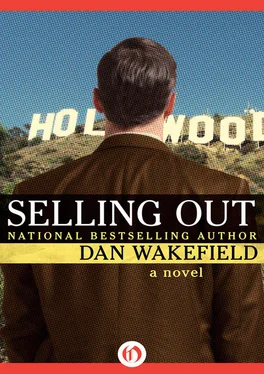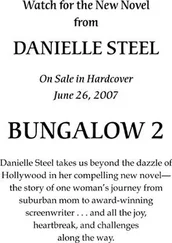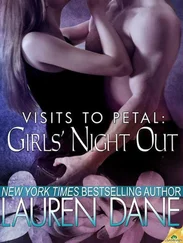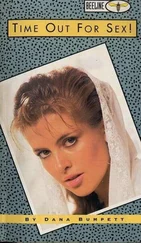“He’s features ,” Vaughan explained. “Mellis is Paragon Television.
“Oh, tele -vision,” Pru said, as if chewing on a prune.
“Anyway, Archer Mellis is the guy I’m working with over there,” Perry said. “He told me he knew you guys, met you at parties, I guess.”
“I’m sure,” Pru said, looking blank. “We must have.”
“Yeah, yeah, Archer Mellis,” Vaughan said. “Long drink of water with aviator glasses.”
“Lots of gold chains?” Pru asked.
“No, no. Only chains he’d have would be for his dog tags,” Vaughan said. “Dresses like Che before coming down from the Sierra Madre.”
“Ah,” Pru nodded. “Sort of a Rodeo Drive Sandinista look?”
“Bulls-eye,” Vaughan nodded.
“Is that where you shop, Pru?” Jane asked. “I’ve heard about Rodeo Drive on Johnny Carson.”
“I still buy at Bonwit’s, in Boston. But Rodeo is fun to browse. I wish I had time to take you some afternoon. Can we see what Dom’s doing with the veal this evening? I’m afraid I have to take a meeting in the Valley tomorrow morning at an absolutely uncivilized hour.”
“Whatever Dom’s doing with the goddam veal, I hope he can grill me a decent sirloin,” Vaughan grumbled. “I’m starved.”
Perry grinned as he leaned back in the booth, enjoying the moment, the whole scene. Vaughan’s grumbling made it seem like old times, and Perry thought how far he and Vaughan had come, from a couple of disgruntled grad students with literary dreams, wolfing down sandwiches from Elsie’s in Harvard Square, to men of substance in the world of entertainment, partaking of a gourmet meal in a fashionable Beverly Hills watering place, surrounded by stars. Vaughan and Pru were among those few who had proved that Ivy League intellect, taste, and style could not only survive in the tinsel of Hollywood, but actually succeed. Perry Moss seemed fated to be the next of those rare birds whose talent could bridge the gap between East and West. He picked up the menu, happily scanning the impressive array of choices. The wise thing seemed to be to put oneself in Dom’s hands as far as the veal, and, in terms of appetizers, Perry found the Canastrelli Trifolata al Spoleto intriguing, perhaps because he hadn’t the remotest idea what it was.
“I really do believe they meant it when they said they wanted to invite us out to their place before we go back,” Perry said while getting undressed for bed that night. “They do have a heavy schedule.”
“Frankly, I can live very well without another dinner with the Vardemans as long as I live, thank you.”
“Oh, come off it,” Perry said. “I know they have their pretensions, but can’t you just relax and enjoy them? Enjoy the show they put on?”
“Not when part of the show is Vaughan Vardeman trying to feel me up during dinner.”
Perry let his pants drop.
“Are you serious? ”
“I was squirming so much to try to keep his hand off my leg I couldn’t even enjoy whatever it was Dom did with the veal.”
Perry shook his head.
“That lousy bastard. What a pal.”
Jane came over and slipped her arms around him, soothing.
“Don’t be mad. It’s sad, really.”
She kissed him on the neck and he relaxed, unclenching his fist.
“The poor guy is probably jealous, I guess,” Perry said. “There he is with Pru, who’s getting bitchier and more unbearable all the time, and I have you .”
“Honey, it isn’t me he’s jealous of, it isn’t me he really wants. It’s what we have . The two of us. Together.”
“I know.”
He kissed her, lightly, thankfully, and her lips moved with his, that special response, so tender and intimate, that led them, together, as one, to bed.
It was magic.
You could tell that right away, just by glancing at it. There wasn’t anything flashy or hokey about the presentation, just the standard Paragon Studio script covers, with the logo in the bottom right-hand corner. Archer had chosen a conservative pale blue, with the title in black italic print, a slight scroll effect giving just a touch of elegance, without ostentation: The First Year’s the Hardest .
It was class.
It was more than that. It really was magic, not just to Perry, who of course would have been impressed by seeing his first script bound for reading, no matter what the thing looked like. Everyone else at Paragon sensed it, too, though none of them as yet had had time to read it. The scripts had just come back from the printer late the previous afternoon and Archer had immediately messengered a dozen copies to the network. This morning he proudly took not only a copy of the script but its author in to Zack Spackford, the president of Paragon, not just the TV division that Archer headed but, as he explained to Perry, this man they were going to meet was his own boss, everyone’s boss, boss of the whole enchilada, feature films and all.
“I like it,” said Spackford, feeling the script, running his hands over the covers, then holding it gingerly on the upraised fingertips of one hand, as if balancing a serving platter.
“It feels good,” he said. “It has a nice weight to it.”
“Thank you,” Perry said.
It was the first time his writing had ever been judged by the texture and weight of what it was written on. This would be a good one to recount back at some faculty bash; it was a kind of one-upmanship for those who said, “You can’t judge a book by its cover,” or those critics who had praised the jacket design of one of his books in the course of a review. Still, he was actually pleased at the mogul’s positive response, and even sensed it was genuine; this was after all a world of signs and portents, of omens and fortunes, and he really believed there was something magical about the script, something Spackford sensed as he held it.
Terry Carver, the studio’s young head of sales, didn’t even have to touch the script to know it was a winner.
He sniffed it.
Carver, who looked like a surfer with skin that was tanned and jeans that were bleached by the sun, was lifting a dumbbell in each hand when Archer came into his office with Perry and laid the script on the edge of his desk. Carver approached it, and without putting down the weights, simply leaned over and sniffed at the crisp new document.
“Yeah,” he said. “It’s got a good smell to it.”
Magic.
Perry wasn’t surprised because the whole process of writing the hour script had been magic, too.
Fifty pages in three weeks!
It sometimes took him six months to write ten pages. Of course these were different kinds of pages, pages with a lot more white space on them, pages where complex descriptions could be done in a kind of shorthand (EXTERIOR—SUBURBAN HOUSE DRIVEWAY—NIGHT), but nevertheless, a real story was here, a drama with beginning, middle, end, a living, breathing creation of believable characters, dealing with real-life, adult dilemmas. This was no schlock sitcom stuff, this was quality , the sort of thing TV critics dreamed of seeing on network television.
Now it was up to the network to decide if they had the guts, the foresight, the imagination to put it on the air.
“You know what the odds are?” Perry asked Jane as they lay at the Marmont pool, sipping from bottles of cool dark Mexican beer. “The odds of a pilot getting produced and going on the air are fifty to one.”
“Where do I place my bet?” Jane asked.
Perry smiled. He shared her confidence. It was part of the amazing change that had come over him. Ordinarily, in any situation like this involving the outcome of something he cared about deeply, Perry was beset by anxiety, sunk in primordial gloom, fearing the worst. Now, knowing that the crucial word from the network would probably come today, might even this moment be waiting in the form of a pink message slip in his box at the reception desk, he was perfectly at ease, enjoying the gentle sun, the cool taste of the beer. The temperature was in the low seventies, the pool was heated at about the same degree. He reached over and rubbed Jane’s shoulder. She was relaxed, too, almost purring.
Читать дальше












